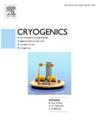High efficiency cryo-adsorbed hydrogen energy storage
IF 2.1
3区 工程技术
Q3 PHYSICS, APPLIED
引用次数: 0
Abstract
The landscape of energy storage technology is rapidly evolving, characterized by a variety of solutions that aim to achieve higher efficiency, greater scalability, and better integration with renewable energy sources. These advancements are crucial for meeting increasing demands and speeding up the transition to a sustainable energy future. The presented research proposes an energy storage method, which is characterized by a low power consumption (high efficiency) and the suitability for large-scale facilities, with energy storage capacities reaching tens of GWh and power outputs in the range of a few GW. The technology can be implemented in any location without a need for specific geographical conditions, and it has the potential for small dimensions and low-cost, in comparison with alternative existing technologies, mainly hydro pumped and compressed air energy storage. The proposed approach consists of storing energy in adsorbed hydrogen at cryogenic temperatures between 80 and 180 K, and pressures of a few tens of bar. The concept of cryo-adsorbed hydrogen energy storage is presented and discussed, where a selected cycle is detailed as an example for implementing the suggested energy storage concept. A thermodynamic analysis of the cycle is executed, providing its energy consumption, which determines the system efficiency, as a function of the hydrogen storing temperature, system configuration, and energy storage duration. The results show energy consumption of about 2 MJ per 1 kg of stored hydrogen, relative to at least 10 MJ per 1 kg of stored hydrogen at existing compressed hydrogen energy storage systems.
高效低温吸附储氢技术
储能技术正在迅速发展,其特点是各种解决方案旨在实现更高的效率,更大的可扩展性,并更好地与可再生能源相结合。这些进步对于满足日益增长的需求和加速向可持续能源未来的过渡至关重要。本研究提出了一种低功耗(高效率)且适合大型设施的储能方法,储能容量可达数十GWh,输出功率在几GW范围内。该技术可以在任何地点实施,不需要特定的地理条件,与现有的替代技术(主要是水力泵和压缩空气储能)相比,它具有小尺寸和低成本的潜力。所提出的方法包括在80至180 K的低温和几十巴的压力下将能量储存在吸附的氢气中。提出并讨论了低温吸附氢储能的概念,其中详细介绍了一个选定的循环作为实施所建议的储能概念的示例。执行循环的热力学分析,提供其能量消耗,这决定了系统效率,作为储氢温度,系统配置和能量储存持续时间的函数。结果表明,每储存1公斤氢的能量消耗约为2 MJ,而现有压缩氢储能系统每储存1公斤氢的能量消耗至少为10 MJ。
本文章由计算机程序翻译,如有差异,请以英文原文为准。
求助全文
约1分钟内获得全文
求助全文
来源期刊

Cryogenics
物理-热力学
CiteScore
3.80
自引率
9.50%
发文量
0
审稿时长
2.1 months
期刊介绍:
Cryogenics is the world''s leading journal focusing on all aspects of cryoengineering and cryogenics. Papers published in Cryogenics cover a wide variety of subjects in low temperature engineering and research. Among the areas covered are:
- Applications of superconductivity: magnets, electronics, devices
- Superconductors and their properties
- Properties of materials: metals, alloys, composites, polymers, insulations
- New applications of cryogenic technology to processes, devices, machinery
- Refrigeration and liquefaction technology
- Thermodynamics
- Fluid properties and fluid mechanics
- Heat transfer
- Thermometry and measurement science
- Cryogenics in medicine
- Cryoelectronics
 求助内容:
求助内容: 应助结果提醒方式:
应助结果提醒方式:


